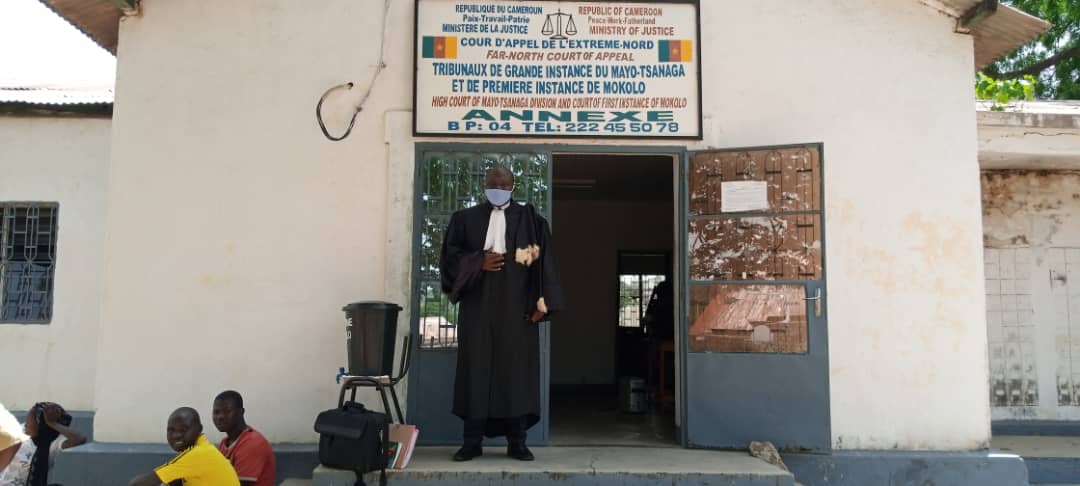Time to read - min

Maître Nestor Toko in front of the Far North Court of Appeal in Cameroon.
Press Release: Fati: An Innocent Woman Sentenced to Death for Terrorism After Being Falsely Accused by a Rejected Suitor
This Friday, a Cameroonian woman known only as Fati will appeal the death sentence imposed despite the lack of any credible evidence against her. In 2016, shortly after her husband lost his life to a bomb attack by the terrorist militia Boko Haram, Fati spurned the advances of a neighbor who later, in retaliation, denounced her to a village group tasked with reporting terrorism-related activity. Subjected to beatings in a military facility, denied access to an interpreter while she was interrogated, and represented by a lawyer who never spoke to her, Fati was sentenced to death after a trial rife with human rights violations. Now, after almost six years in prison, Fati finally has a chance to obtain justice on Friday when a court hears her appeal. We urge the Cameroonian authorities to reverse this gross miscarriage of justice and ensure that Fati is released.
Fati lived with her husband of over 20 years and three children in Kolofata, a town in Cameroon’s impoverished and troubled Northern region. Lying close to the Nigerian border, Kolofata has repeatedly been targeted by the militant group Boko Haram. In September 2015, Boko Haram launched deadly suicide attacks against the town, killing Fati’s husband and several others. Four months later, after being denounced by her neighbor, Fati was arrested, beaten unconscious, and accused of supporting the very group that had caused her husband’s death. For the past few years, human rights organizations have decried waves of arbitrary arrests in Cameroon in the wake of terrorism attacks. Security forces sometimes detain individuals with little more evidence than rumor and personal accusations. As Amnesty International’s West and Central Africa Regional Director, Alioune Tine, explained in a 2016 report: “In seeking to protect its population from the brutality of Boko Haram, Cameroon is pursuing the right objective; but in arbitrarily arresting, torturing and subjecting people to enforced disappearances the authorities are using the wrong means.”
Fati’s trial was characterized by egregious due process violations. After her arrest, she was detained without charge for ten months, including at least three months in a military camp where security forces repeatedly interrogated and threatened her in French, a language she does not understand. Without access to a lawyer, she could neither understand nor effectively respond to the allegations against her. In October 2016, Fati was charged with complicity in acts of terrorism and tried by a military tribunal, despite her civilian status. After an expedited trial, Fati was summarily convicted and sentenced to execution by firing squad, despite the absence of any direct or material incriminating evidence. Indeed, no witnesses appeared at her trial, and the court relied solely on neighbors’ declarations referring to conversations they had not witnessed. Fati’s lawyer, who was not yet fully qualified, never spoke to his client and therefore knew nothing of her personal conflict with the man who denounced her.
Fati describes the most difficult part of her trial as “not understanding anything about the drama that was playing out in front of me, even though I was its main character.” After six intolerable years in Maroua’s notorious Central Prison, during which she has had no contact with her children, Fati hopes that she will finally be vindicated by her appeal on 12 November, receive recognition for the grave injustices she has suffered, and be reunited with her family.
Contact :
Delphine Lourtau, [email protected]
Ariane Jacoberger, [email protected]
Cornell Center on the Death Penalty Worldwide